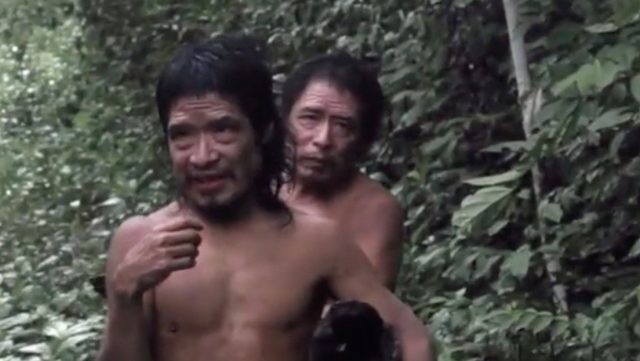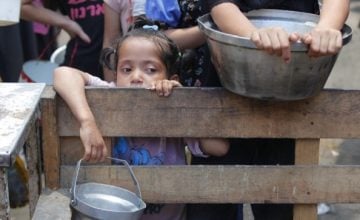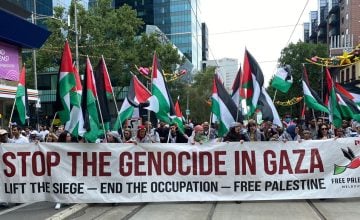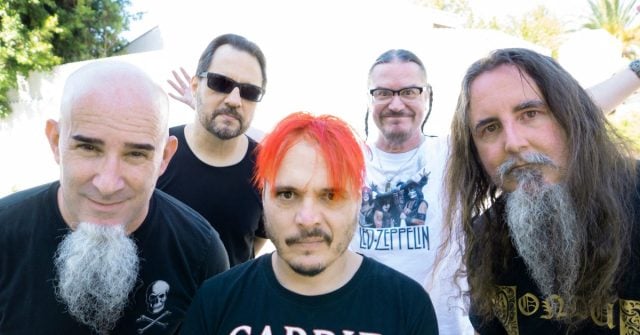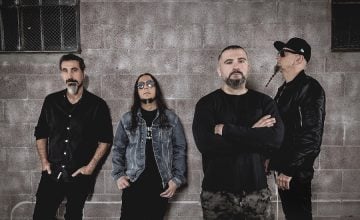Tamandua and Baita are nephew and uncle. They have survived decades of attacks by land invaders in which many of the members of their indigenous tribe, the Piripkura, are believed to have perished in Mato Grosso, a Brazilian state symbolic of agribusiness expansion.
For at least 40 years, they have lived isolated in the depths of the jungle, having each other as their only company, explains Marta Miera in a report for RT.
There is also a Piripkura woman, Rita. Tamandua is her nephew and Baita her brother. By her own choice, she does not live in isolation. The fierce exploitation of her land for beef production and illegal logging pushed her to separate herself from her family in Brazil.
«The indigenous people know the jungle deeply», but with the invasions of loggers, landowners or land speculators, the balance is broken and everything changes for them, comments Leonardo Lenin, executive secretary of the Observatory for Human Rights of Indigenous Peoples (OPI ) to RT.
It is believed – for example – that the Piripkura were a farming people, a sedentary activity that they abandoned to become «invisible» in a survival strategy against the invaders of the Amazon in Brazil.
Over time, pressure increased – intensified in the 1970s with the occupation plans of the military government – on the territory by the powerful agricultural lobby and loggers.
As a consequence, the number of ‘uncontacted’ indigenous people was drastically reduced: by assassinations or by diseases contracted through invaders.
Lenin worked for years with the team of the National Indian Foundation (Funai), which has been following these two men for decades. According to him, when these isolated groups are decimated they feel «great stress» because they cannot comply with their social customs.
Rita’s journey in Brazil
That’s where Rita’s journey begins.
When Baita, her own brother, wanted to marry her, contrary to the ancient dogmas of her community, she made up her mind to leave.
She then established a relationship with some agricultural laborers from one of the invading estates. For years she worked in conditions analogous to slavery, and it is suspected that she was the victim of sexual abuse. In the late 1980s, she was freed by a team from the Native Amazon Operation (OPAN).
Later, she married Aripan, from the Karipuna indigenous people, in the state of Rondonia. They do not have kids. The stories of this woman opened a window of knowledge about the Piripkura indigenous people.
«White men came at dawn and killed everyone», she explains in a video about one of the attacks she survived, in which nine members of her family died.
She also reflects on Tamandua and Baita: “I’m thinking they could be killed. There are a lot of people [invaders] walking around here. They are going to kill them both. If they are killed, there will be no one left».
According to her, in the 70s the Piripkura were about 20 people.
Ineffectiveness of Brazilian legal mechanisms
The Brazilian authorities have registered 115 isolated tribes, who live exclusively in the jungle, have no relationship with non-indigenous people and maintain very sporadic contacts with other indigenous peoples.
Only 28 of those tribes have been confirmed. The rest have been under investigation for years.
Based on Rita’s testimonies, Funai set up a technical group in 1985 to identify the territory, located between the municipalities of Colniza and Rondolândia, and demarcate it, something that has not yet happened.
In the first contact, only Tamandua and Baita appeared.
«We have not been able to know what happened to the rest, because they do not like to talk about it. I had the opportunity to talk to them about this and they got very irritated», says Lenin.
Experts do not rule out that there are other uncontacted indigenous people in the area. Piripkuras or from another group.
In theory, the Piripkura are protected by a legal mechanism called ‘portaria de restrição de uso (ordinance of restricted use)’, renewed every two or three years and whose validity is about to end.
But the reality is that the invaders ignore it. Nor has the State applied Article 231 of the Constitution, which recognizes indigenous peoples «their social organization, customs, languages, beliefs and traditions, and the original rights over the lands they traditionally occupy».
«This emergency mechanism, which prevents invaders from entering these lands, safeguards the indigenous peoples until their lands are demarcated as required by the Constitution», denounces Sarah Shenker, director of the campaign for uncontacted indigenous peoples of Survival to RT.
A team from the Socio-Environmental Institute (ISA) flew over Piripkura territory in October: they saw the start of the fires, farms in full operation, movement of trucks and cattle feeding on the grass resulting from deforestation.
Only between mid-July and the end of September, 4,153 hectares of this 240,000-hectare territory were deforested. A huge area with almost 1.3 million trees totally disappeared.
Tamandua and Baita
The Funai team, led by the prestigious indigenous leader Jair Candor, had contact with Tamandua and Baita at least four times.
They have always been the ones who, on their own initiative, have approached the base that the organization maintains in the area.
For their part, the indigenists carry out expeditions to control the territory. “But the situation is so dangerous that the team can’t do its job. They are rejected and threatened”, says Lenin.
Funai’s work has been politicized in recent years.
Several organizations denounce that, since Jair Bolsonaro assumed power in 2019, the organization has been adding employees linked to the interests of agribusiness and anti-indigenous.
“The Bolsonaro government has fulfilled its pre-campaign promise not to regularize an inch of land for the indigenous peoples and to implement economic projects (…) in the last two years these invaders, with political backing, feel encouraged to enter the territory», denounces Lenin.
In the late 1990s, Tamandua and Baita approached a ranch in search of fire, thinking it was the Funai team.
Extremely vulnerable to any outside illness, the first to become infected with the flu was Tamandua. Both were cared for, cured and returned to the jungle.
More than 15 years later, there was another contact. «Baita was strange. He began to say that he was in pain and was transferred to a hospital where they found several kidney stones and underwent surgery. In that process of recovery he was catching all kinds of illnesses, because they put him together with other people «, explains Lenin.
About ten years later, the two men were transferred to Sao Paulo. One with a prostate problem, the other with a clot in the brain. They underwent surgery and spent time in the hospital. Throughout this process, Rita was always by their side.
Later, Tamandua and Baita returned to the depths of the jungle in Brazil. They have not made contact again.
